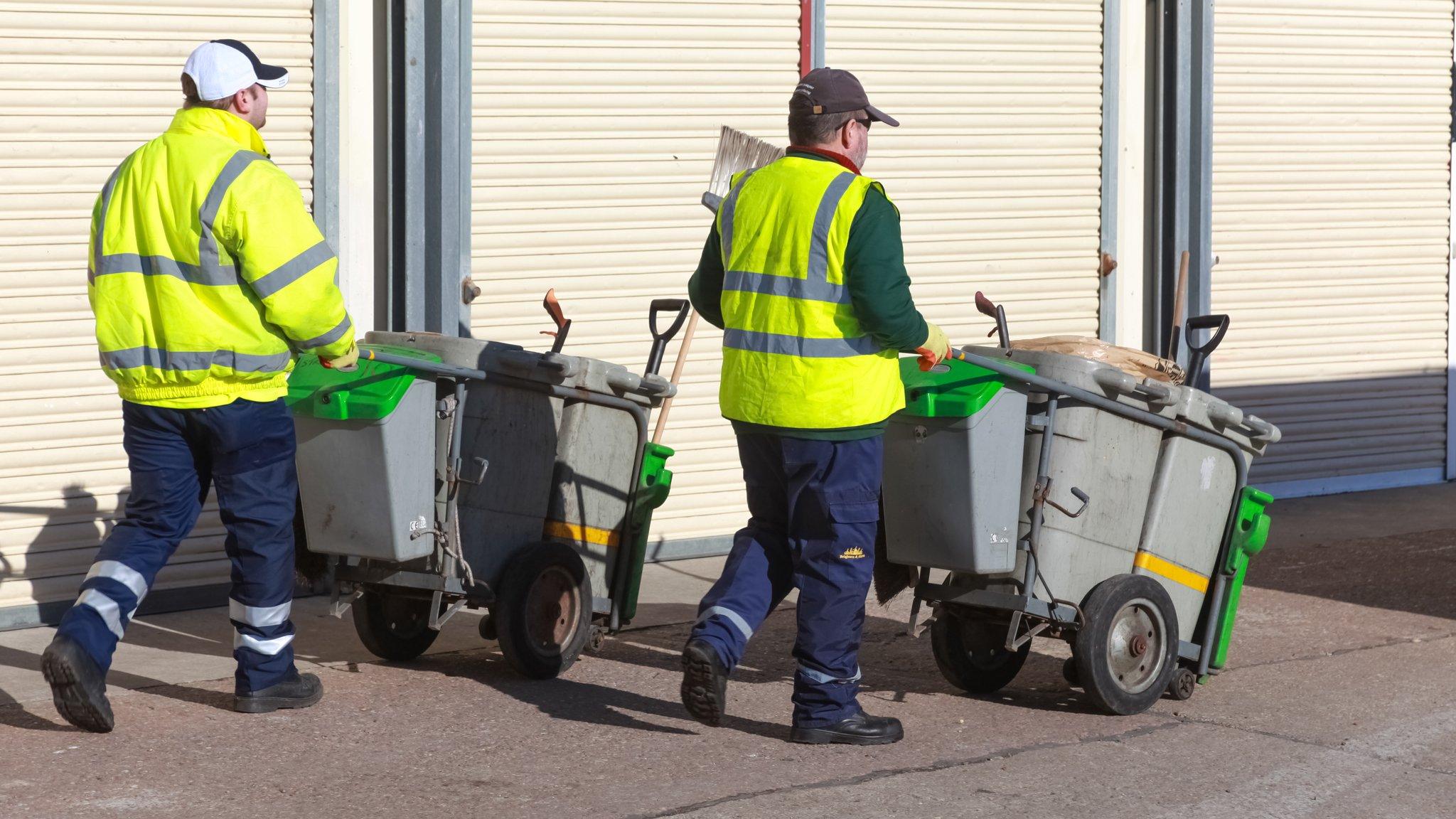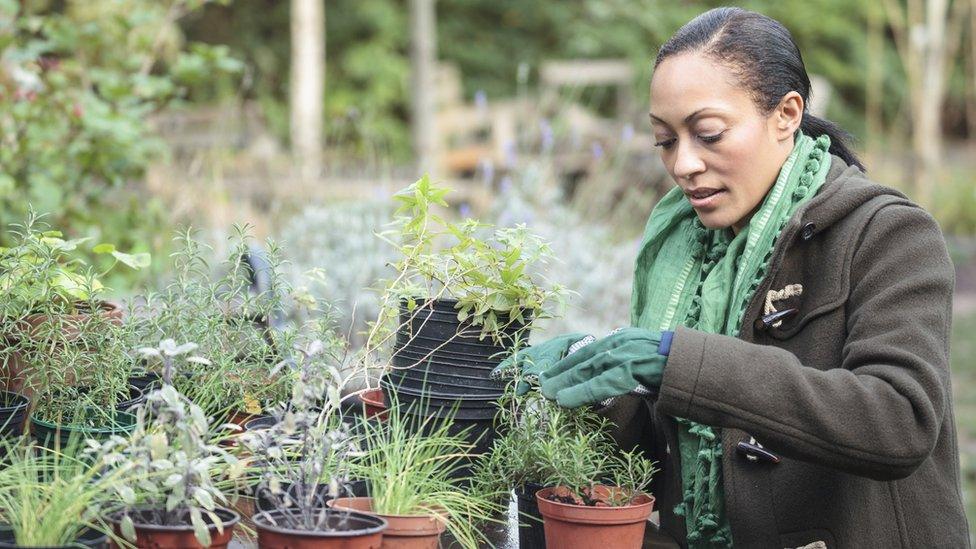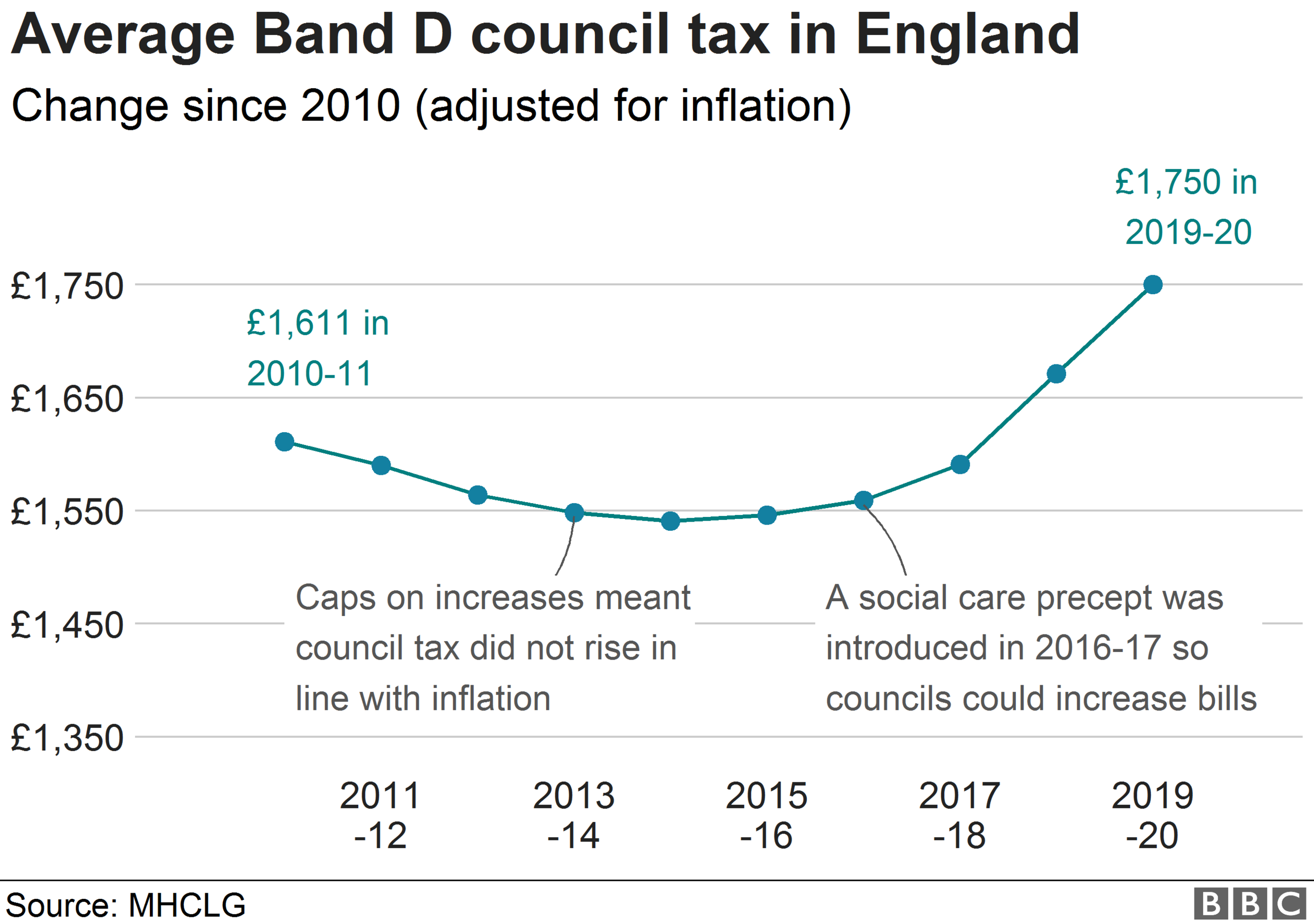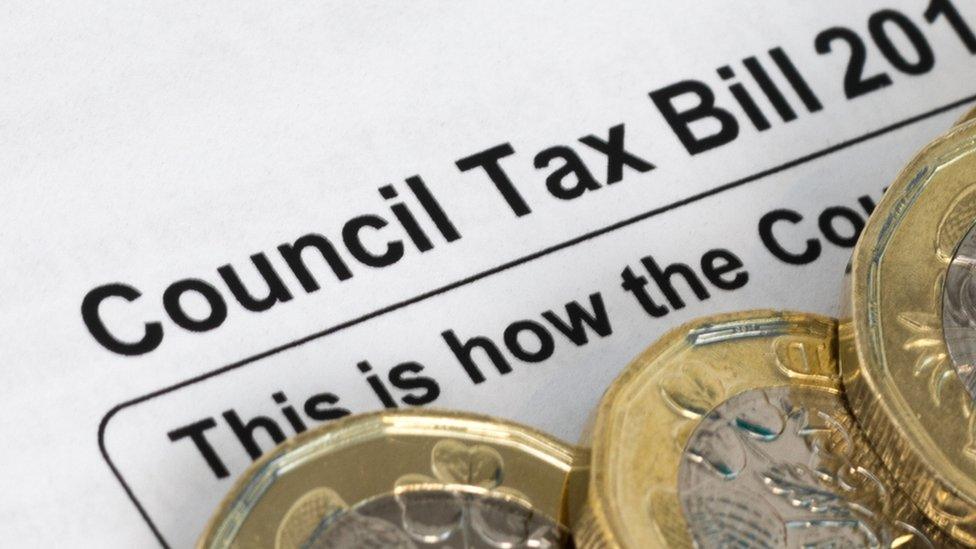Parish council tax bills rise 'to save services from cuts'
- Published

Parish and town councils are taking on services like street cleaning and litter bin collection
Dozens of parishes in England have doubled their council tax bills, while some are taking on services they say larger authorities cannot afford.
Parish and town council officials said they were trying to protect services following government funding cuts.
BBC analysis found 45 parishes more than doubled their levy on the Band D council tax for 2019-20.
The government said councils were responsible for their own decisions about how much to charge.
Official data, external showed three out of four English parish and town councils increased their bills this year.
About 18 million people live in parishes and have to pay a precept on their council tax, with parish councils asking for £554m in 2019-20.
Local authorities in England have seen their funding fall since 2010 while council tax increases have been capped, but parish increases do not have the same restrictions.
'Like a threat'
Prof Alistair Jones, from the Local Governance Research Centre at De Montfort University, said parish bills were rising as smaller authorities were taking on services larger councils could no longer afford to run.
"Due to cutbacks to principal authorities [district or borough councils] sometimes parish councils are told, almost like a threat, to take a local service or lose it," he said.

Parish councils have increased their council tax income by more than a third since 2015-16.
Larger councils can only increase bills by 2.99% plus a further 2% if they provide social care. District councils were allowed an increase of either 2.99% or £5 on their share and police and crime commissioners were allowed to put £24 on to bills. If they want to increase it by more they must hold a referendum.

What does a parish council do?

Parish councils provide services ranging from allotments to street cleaning
There are about 10,000 parish councils in England, according to the National Association of Local Councils, external.
They may provide, maintain or contribute to services such as allotments, leisure, bus shelters, litter bins, car parks, local illuminations, community centres, parks and open spaces, public toilets, street cleaning, cycle paths and planning.
"When many people think of parish councils, they think it's like the council in the Vicar of Dibley," Prof Jones said, "the vast majority are not like that."
"They're a group of people who want to deliver better local services for their community," he added.

'Stark choice'
Chippenham in Wiltshire saw the largest increase in overall council tax income compared to 2018-19. It added £842,432 to its total precept, an increase of 40% on the year before.

Councillor Sandie Webb, leader of Chippenham Town Council said it needed the extra money to run services formerly delivered by Wiltshire Council, which had to make savings of £27m.
"Our councillors were left with a stark choice," the council's chief executive Mark Smith said. "Don't take on the services and watch the town decline, or take the brave decision to take on services."
In a letter to residents, the council said it had taken on green space and play area maintenance as well as street cleaning and management of the town market.
It also took on running costs of sports centres, an arts centre and allotments.
Councillor Philip Whitehead, Wiltshire Council cabinet member for finance, said transfers of assets and services had "proven to be beneficial for local communities as it has allowed them to decide at a local level how to prioritise their spending."
Broken down per household the parish with the largest increase in the Band D bill was Lilbourne in Northamptonshire.
The levy almost tripled, rising from £89 to £259 per Band D home. The council's chairman, Ben Berridge, said it was a "temporary" rise so the parish could buy a field near the village, which he said had seen interest from caravan park developers.
He said a village meeting was held where residents decided to buy the land to "protect the integrity" of the area.
'Severe cuts'
In Newport Pagnell, Buckinghamshire, the annual bill per Band D home increased by £45.75. Town clerk Shar Roselman said residents "prefer to pay a bit extra" to make the town look good.
She said the money goes towards maintaining green space, as well as helping to run a pool, sports ground and youth club.
"Grass cutting had been very poor, trees were dying in parks, and our play areas were all about 40 years old," she said.
She added there was no sign the local authority, Milton Keynes Council, would refurbish them due budget cuts.

A spokeswoman for the Ministry of Housing, Communities and Local Government (MHCLG) said: "The government has been clear that it expects parish and town councils to limit any precept increases where possible."
She added parish precepts were "relatively small" in cash terms, and may represent one off costs, such as village hall repairs.

- Published27 March 2019

- Published21 March 2019
